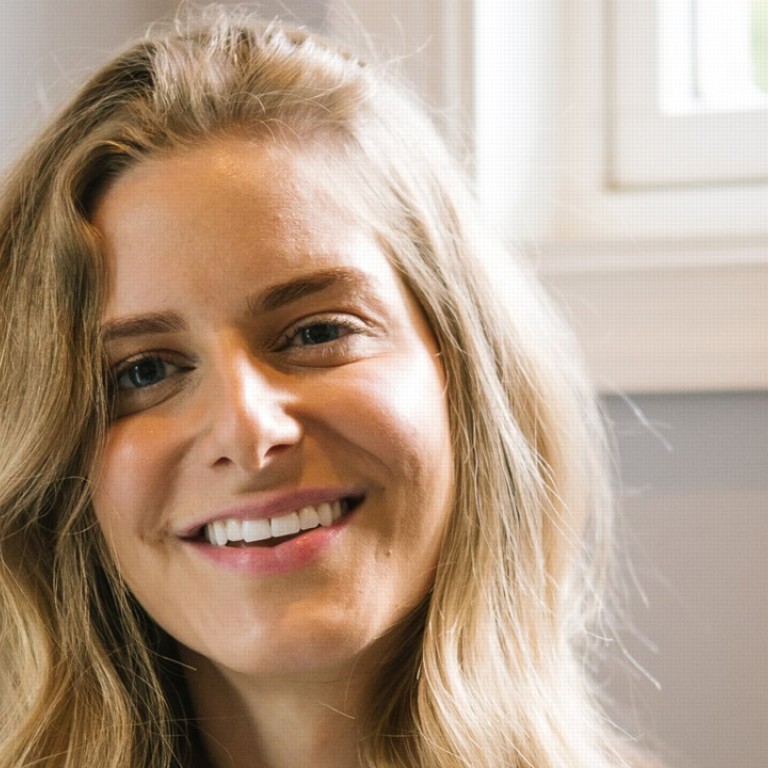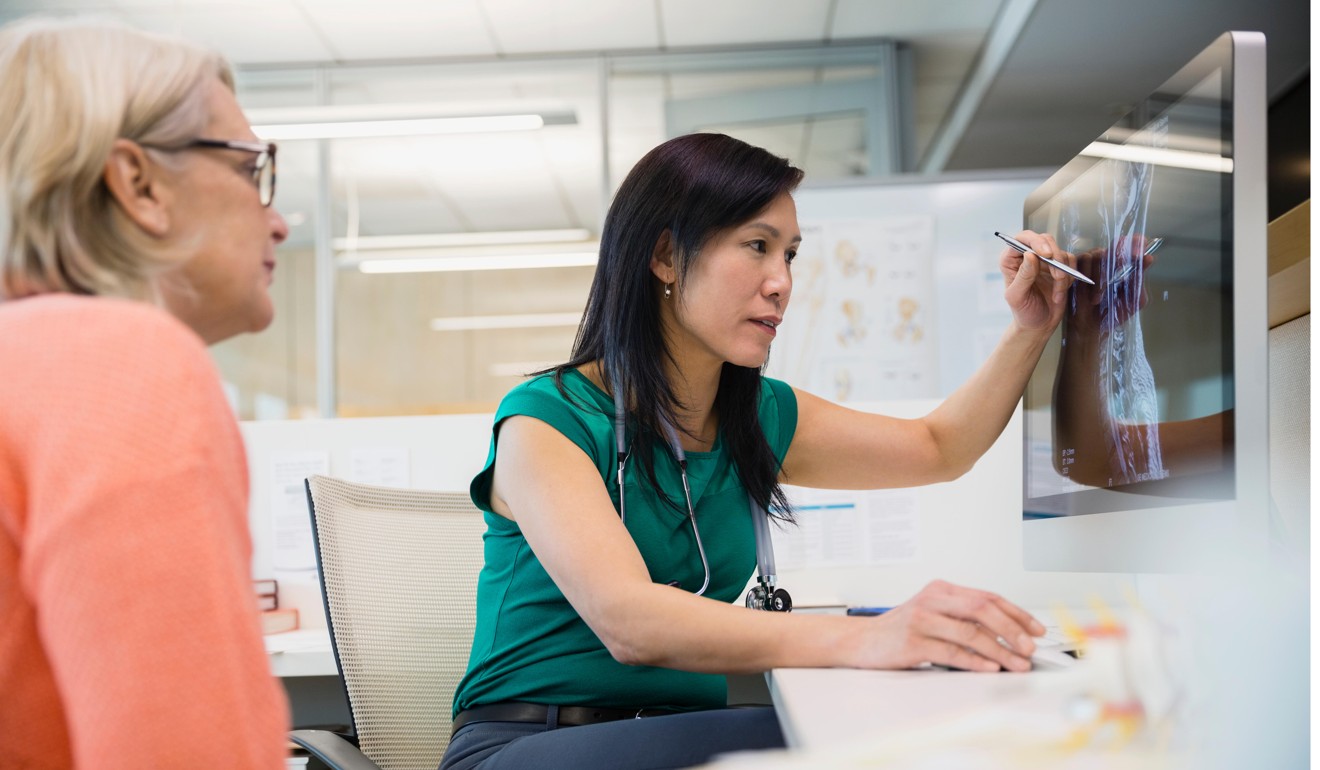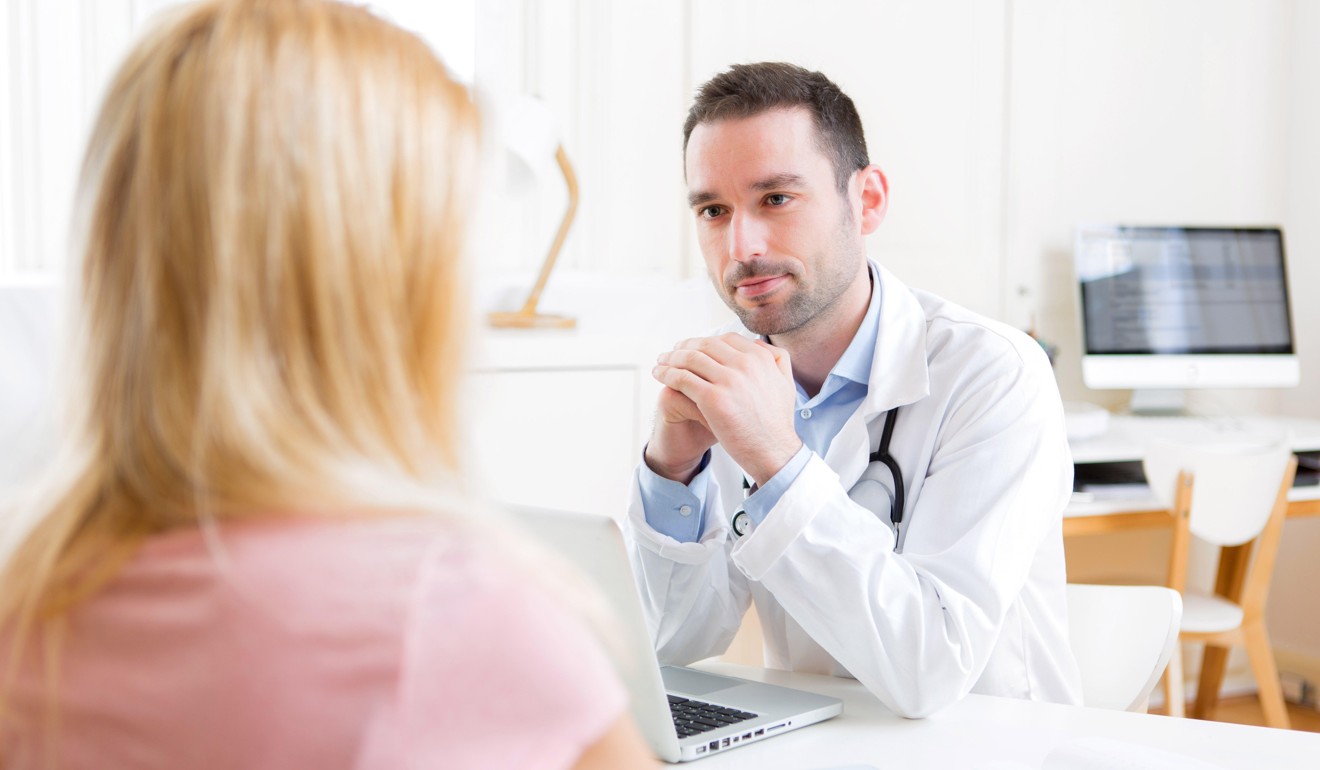
I had colon cancer at 24. I was sent home to die. But I survived. Here’s eight things I learned on the journey
After two operations and two rounds of chemotherapy, doctors told Stefanie Joho there was nothing more they could do. But she took matters into her own hands to beat the odds and survive colon cancer
At the age of 24, after two surgeries and two aggressive rounds of chemotherapy failed to cure me, my oncologist sent me home to die. When I was first diagnosed with colon cancer in 2013, I’d never even heard the word immunotherapy. I didn’t know that my doctors wouldn’t have all the answers.
One woman’s Hong Kong ovarian cancer journey and her positive message for fellow sufferers, their friends and family
I thought clinical trials were last-ditch efforts, rather than treatments that save countless lives. I didn’t know that a treatment geared to fighting my specific type of cancer, and the genetic components of my tumour, would go on to potentially offer tens of thousands of patients a revolutionary new path to surviving cancer in 2017.
Because I’m one of the lucky ones who looked into the abyss and made it out the other side, it is my duty to share critical things I have learned in what is now a new era in cancer care. A disease that should have killed me, instead, launched my career in patient advocacy.
Keeping cancer on the run: Hongkonger fights disease on city’s trails
Every cancer is unique. So think of the following points as road signs – ones I wish someone had shown me when I felt lost, with nowhere to turn.
1. The more we know, the more we can fight for our lives
We look to doctors to be the experts – partly because, in a moment of such despair, we want to be able to look to someone to just give us the answers. You will not find that person in anyone but yourself.
You will often be made to feel that being a “good patient” means not asking questions. Do not be afraid to speak up. Your life depends on it
In the beginning of my cancer journey, I felt intimidated by my doctors and made several decisions that I now regret. I walked into appointments and agreed to everything, without even considering a second opinion. As my cancer kept coming back and the treatments kept failing, I decided that the only chance I had to make it out alive would be to educate myself. I scoured the internet. I became an “expert” not only in my specific disease, but also in the current cancer landscape.
I’m not encouraging you to become your own doctor and understand all the science. And, I’m not encouraging you to take everything you read on the internet as fact. But in 2017, with the amount of accessibility to information, I’m encouraging you to seek it out. Never take anything at face value or trust blindly. Make informed decisions, not decisions based on fear. Walk into appointments with your doctors as an equal, not as a passive bystander.

2. Asking questions is not making trouble
You will often be made to feel that being a “good patient” means not asking questions. Do not be afraid to speak up. Your life depends on it. Come into every appointment with a prepared list. If possible, bring someone who can take notes. If you are confused about something, ask. If you think of it later, write it down. Remember: You are fighting for your life. Make every thought, concern and feeling heard. Repeat as often as necessary.
We must help one another by sharing and participating in clinical trials. Patients are partners of science and as big a part of the cure as doctors
If you begin to develop a symptom, understand it is the system’s job to help you get relief. If your doctors aren’t taking you seriously, then seek one out who will.
3. No two cancers are the same. Become an expert in yours
Increasingly, knowledge of such individual variation is shown to lead to more effective treatments. Ask your physicians and understand every type of genetic testing available to you. The more granular you can get about the specifics of your disease, the more you will maximise your chances of identifying the best possible treatment. (Discovering the genetic biomarker of my cancer saved my life.) Continue to expand your resources so that you can be an expert in your own cancer.

4. Take note of every potential side effect. Report everything
The incredible advances in cancer treatments have created a new set of challenges for clinicians, especially in how to identify the side effects. Given that these are new treatments, your doctors are not as practiced with them as they are with chemotherapy and radiation.
I believe in hope. It saves lives. When your mind tells you it’s over, the body has no reason to keep fighting
For example, immunotherapy is entirely different from traditional treatment. The former uses the patient’s own immune system, whereas the latter aims to attack only the cancer cells. Early recognition and management of side effects can make the difference between life and death.
Don’t hold back. Your oncologist needs to know everything to best care for you. Listen to your body. Observe and report any changes.
5. Clinical trials are not a last resort
The lines of treatment are rapidly changing, and, more often than not, access to cutting-edge treatments entails enrolling in a clinical trial. There’s a misconception that they are reserved for those who have exhausted all other options. Trials can actually offer access to the most individualised cancer treatment. And, immunotherapy is slowly becoming the first line of treatment – even being used before surgery to prevent relapses.
Hong Kong professor takes lead on cancer immunotherapy trial
We must help one another by sharing and participating in clinical trials. Only 4 per cent of cancer patients are currently enrolled in studies. Patients are partners of science and as big a part of the cure as doctors. Without us, and our willingness to participate, medical advances would not exist. I will always feel proud for participating in a study that will save many thousands of lives.

6. Cancer is not just a physical disease
Cancer is not a journey that you can navigate alone. The people and professionals with whom you surround yourself will alter the course of your journey
It is critical to address the mental, emotional and spiritual aspects of this disease. Seek help, support and healing from other places, too. There are many schools of thought about why people become ill and what can be done to help them recover. As one example, among many, learning about nutrition made me feel as though I was actively fighting and doing something to help my body heal.
7. Hope is a lifeline
I believe in hope. It saves lives. When your mind tells you it’s over, the body has no reason to keep fighting. If you find yourself drifting that way, remember: “You haven’t failed the treatments; the treatments have failed you.”
Of course, doctors must tell their patients the difficult truth. But, the words used to deliver such news matter. If your doctor is unable to provide you with hope to keep fighting, find the hope and strength from within yourself and your loved ones.
8. None of this can be done alone
Cancer is not a journey that you can navigate alone. The people and professionals with whom you surround yourself will alter the course of your journey. They will lend you strength when you feel you simply have nothing left to give.
Cancer doctors embrace drugs that boost immune system to beat disease
If you physically or emotionally cannot actively advocate for yourself, then ask someone to be your advocate. My younger sister, Jess, often had to speak up for me. She knew my doubts and concerns, and what was important to me. She became my voice when I didn’t have one.
Create a healthcare team that listens to you and cares about you and includes you in every aspect of your decision-making process.
Mental slide of Hong Kong cancer patients and caregivers overlooked, survey finds
Connect with others in the community. As much as your loved ones will be there for you, they will not understand the complexities that you are grappling with on a daily basis. Making friends with other cancer patients (even through social media) enabled me to share the fears and anxieties I was too ashamed or embarrassed to talk about with those who weren’t confronting their own mortality. I could speak openly about my side effects, the changes in my body, my isolation. I could utter the words, “I’m ready to give up”, without guilt.
It certainly doesn’t have to be about only cancer, but knowing that this kind of support exists is healing. It makes you feel understood.
The Washington Post
